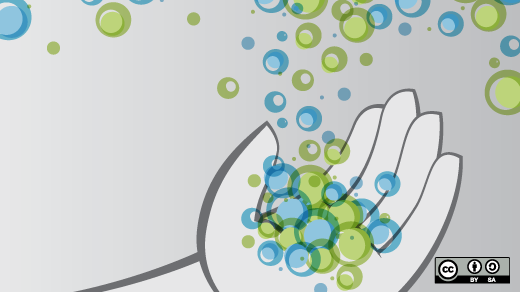Want to thank everyone who came to my session and who sent me wonderful feedback from both the keynote and the session. I was thrilled to see ZDnet wrote a piece about the keynote as well as have practioners, such as Sonya Barry, the Community Manager for Java write things like this about the longer session:
Wednesday at OSCON we kicked off the morning with the opening plenaries. David Eaves' talk inspired me to attend his longer session later in the day - Open Source 2.0 - The Science of Community Management. It was packed - in fact the most crowded session I've ever seen here. People sharing chairs, sitting on every available spot on the floor, leaning up against the back wall and the doors. Tori did a great writeup of the session, so I won't rehash, but if you haven't, you should read it - What does this have to do with the Java Community? Everything. Java's strength is the community just as much as the technology, and individual project communities are so important to making a project successful and robust.
That post pretty much made my day. It's why we come to OSCON, to hopefully pass on something helpful, so this conference really felt meaningful to me.
So, to be helpful I wanted to lay out a bunch of the content for those who were and were not there in a single place, plus a fun photo of my little guy - Alec - hanging out at #OSCON.
A Youtube video of the keynote is now up - and I've posted my slides here.
In addition, I did an interview in the O'Reilly booth.
There is no video of my longer session, formally titled Open Source 2.0 - The Science of Community Management, but informally titled Three Myths of Open Source Communities, but Jeff Longland helpfully took these notes and I'll try to rewrite it as a series of blog posts in the near future.
Finally, I earlier linked to some blog posts I've written about open source communities, and on open source community management as these are a deeper dive on some of the ideas I shared.
Some other notes about OSCON...
If you didn't catch Robert "r0ml" Lefkowitz's talk: How The App Store Killed Free Software, And Why We're OK With That which, contrary to some predictions was neither trolling nor link bait but a very thoughtful talk which I did not entirely agree with but has left me with many, many things to think about (a sign of a great talk) do try to see if an audio copy can be tracked down.
Jono Bacon, Brian Fitzpatrick and Ben Collins-Sussman are all menches of the finest type - I'm grateful for their engagement and support given I'm late arriving at a party they all started. While you are reading this, check out buying Brian and Ben's new book - Team Geek: A Software Developer's Guide to Working Well with Others.
Also, if you haven't watched Tim O'Reilly's opening keynote, The Clothesline Paradox and the Sharing Economy, take a look. My favourite part is him discussing how we break down the energy sector and claim "solar" only provides us with a tiny fraction of our energy mix (around the 9 minutes mark). Of course, pretty much all energy is solar, from the stuff we count (oil, hydroelectic, etc.. - its all made possible by solar) or the stuff we don't count like growing our food, etc.. Loved that.
Oh, and this ignite talk on Cryptic Crosswords by Dan Bentley from OSCON last year, remains one of my favourite. I didn't get to catch is talk this year on why the metric system sucks - but am looking forward seeing it once it is up on YouTube.






Comments are closed.